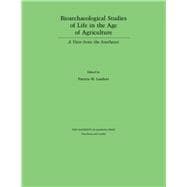
| Acknowledgments | p. xv |
| Introduction | p. 1 |
| Ancient Diseases, Modern Perspectives: Treponematosis and Tuberculosis in the Age of Agriculture | p. 6 |
| Warfare-Related Trauma in the Late Prehistory of Alabama | p. 35 |
| Transitions at Moundville: A Question of Collapse | p. 63 |
| Dental Health at Early Historic Fusihatchee Town: Biocultural Implications of Contact in Alabama | p. 78 |
| Agricultural Melodies and Alternative Harmonies in Florida and Georgia | p. 96 |
| Inferring Iron-Deficiency Anemia from Human Skeletal Remains: The Case of the Georgia Bight | p. 116 |
| A Comparison of Degenerative Joint Disease between Upland and Coastal Prehistoric Agriculturalists from Georgia | p. 134 |
| Dental Health and Late Woodland Subsistence in Coastal North Carolina | p. 148 |
| Life on the Periphery: Health in Farming Communities of Interior North Carolina and Virginia | p. 168 |
| "Utmost Confusion" Reconsidered: Bioarchaeology and Secondary Burial in Late Prehistoric Interior Virginia | p. 195 |
| References | p. 219 |
| Contributors | p. 273 |
| Index | p. 277 |
| Table of Contents provided by Syndetics. All Rights Reserved. |
The New copy of this book will include any supplemental materials advertised. Please check the title of the book to determine if it should include any access cards, study guides, lab manuals, CDs, etc.
The Used, Rental and eBook copies of this book are not guaranteed to include any supplemental materials. Typically, only the book itself is included. This is true even if the title states it includes any access cards, study guides, lab manuals, CDs, etc.